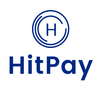Experiencing SumUp Limitations? Switch to a Free SumUp Alternative
This article explores the challenges small businesses face with SumUp, such as issues in data management, support, and scaling costs. It introduces HitPay as an alternative, highlighting its ease of use, variety of payment options, and cost-effective solutions tailored for SME growth.

For small businesses, the choice of payment processing service is crucial. While SumUp is a popular choice for businesses, its limitations in areas such as data backup, customer support, and additional license costs might lead you to consider alternatives.
HitPay emerges as a strong alternative option, especially for businesses looking for more simple, cost-effective, and feature-rich solutions.
Why Look Beyond SumUp?
When using SumUp, many small businesses run into a few problems.
1) First, it's hard to keep a backup of your sales and money records with SumUp. This is important if you need to keep accurate and up-to-date records.
2) Also, if your business is growing and you want to use SumUp in more places, you might find it's getting quite expensive. The cost of adding more systems in new locations or for new machines can add up quickly.
3) Working with other business tools can be tough with SumUp too. It doesn't always integrate easily with marketing tools or other business management systems. This can make it hard to do everything you want with just one system.
4) Finally, starting with SumUp can be costly. The initial price of buying their machines might be too much for new or small businesses.
These are some reasons why it's a good idea for businesses to consider other options, especially if they want to grow and have more support.
HitPay: A Superior Alternative to SumUp
HitPay emerges as a compelling alternative to SumUp, particularly for businesses looking to overcome SumUp's limitations:

1) A standout feature of HitPay is its integrated system for easy and secure backup of all transaction data. This functionality addresses the challenge of maintaining accurate and up-to-date records, a common issue with SumUp.
2) Moreover, HitPay's pricing model is transparent and fair, with fees starting from just 1%. This structure is particularly beneficial for growing businesses.
3) Unlike SumUp, which can become costly as businesses expand, HitPay offers straightforward, transaction-based pricing with no hidden fees or subscription costs. This means you only pay for what you use, allowing for better financial planning and eliminating surprises.
4) For businesses concerned about the initial investment in payment systems, HitPay provides a range of credit card terminals tailored to various business needs, ensuring a lower initial cost.
Additionally, HitPay’s POS software supports unlimited locations, a significant advantage for businesses looking to expand without incurring excessive costs. This flexibility contrasts with SumUp’s model, where expanding to more locations or adding new machines can be financially expensive.
Lastly, HitPay stands out for its easy compatibility with popular e-commerce platforms like Shopify and WooCommerce, as well as various accounting software. This seamless integration makes HitPay a more versatile and user-friendly option, especially for businesses that find integrating SumUp with other business tools challenging.
Overall, HitPay offers an efficient, cost-effective, and flexible solution for businesses, especially those looking to grow and integrate seamlessly with other digital tools.
Its focus on transparent pricing, easy data management, and broad compatibility makes it a strong contender for businesses considering a SumUp alternative.
Have questions about HitPay?
If you're a customer who has questions about paying with HitPay, feel free to contact us on our website.
Are you a merchant who wants to offer more payment methods with HitPay's secure payment gateway?
Set up an account for free or find out more with a 1-on-1 demo.
Read also:

